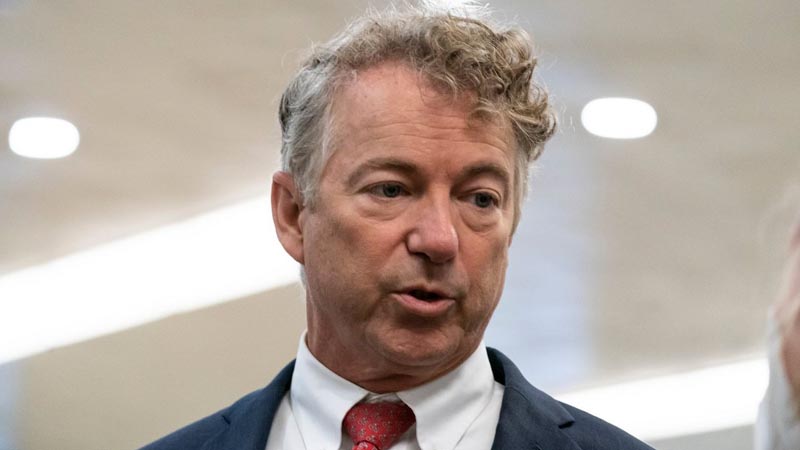Sen. Rand Paul (R-KY) voiced his opposition to President-elect Donald Trump’s plan to impose tariffs on imported goods, arguing that such a move would act as “a tax on the consumer.” The Republican senator expressed his concerns during an interview on CBS’s Face the Nation on Sunday, where he also discussed his stance on Treasury secretary nominee Scott Bessent.
When host Margaret Brennan asked if Paul would support Bessent, a billionaire hedge fund CEO, for the Treasury role, the senator indicated he was “leaning” towards approval but had reservations tied to Trump’s tariff strategy. “I don’t like tariffs,” Paul stated bluntly. “But then again, I don’t like the president promoting tariffs. I think tariffs are a tax on the consumer.”
Paul elaborated on the broader economic impact of tariffs, particularly on industries reliant on imported materials. “They ignore things like with steel,” he explained. “There are 80 workers working in steel-buying industries for every worker making steel. So yeah, you can protect certain industries, but it’s at the expense of other people.”
Despite his criticism of tariffs, Paul suggested that his opposition to the policy might not prevent him from ultimately supporting Bessent’s nomination. “I will be vocal in saying that I think tariffs are bad and that international trade actually saves every consumer about seven thousand dollars a year,” he said.

Highlighting the economic benefits of global trade, Paul added, “These amazing international trade [agreements] have made us all richer, and we need to talk about the statistics and facts concerning the benefits of trade.”
Paul’s remarks reflect ongoing tensions within the Republican Party over Trump’s trade policies, which have often diverged from traditional conservative support for free-market principles. While Paul stopped short of outright rejecting Bessent’s nomination, his criticism underscores broader concerns among fiscal conservatives about the potential economic fallout of protectionist measures.
As Trump prepares to assume office, debates over trade policy and the role of tariffs in protecting American industries are likely to intensify, with Paul positioning himself as a vocal advocate for free trade and consumer benefits. Whether his opposition will influence Trump’s approach remains to be seen, but Paul’s comments signal that tariff policy could be a contentious issue within the new administration.

